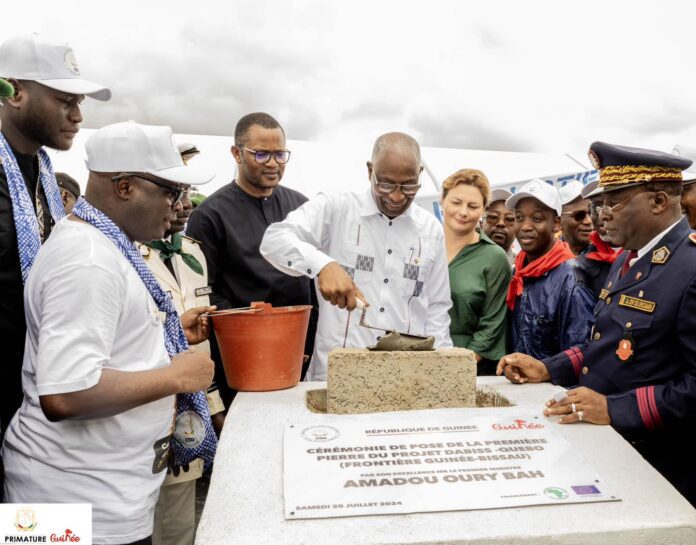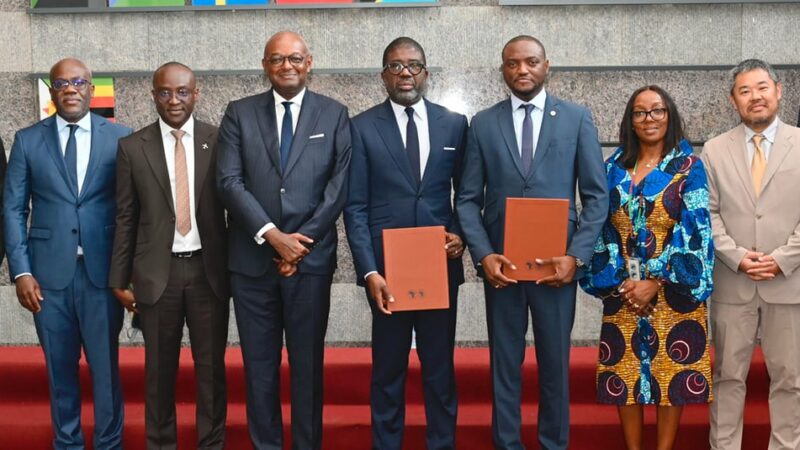Guinea and Guinea-Bissau Soon to be Connected by a New Strategic Road: Launch of the Boké-Québo Project

On July 20, 2024, Guinea officially launched the construction of the Boké-Québo road, a major infrastructure project aimed at connecting the country to Guinea-Bissau. The groundbreaking ceremony took place in the urban commune of Boké, attended by Prime Minister Amadou Oury Bah and several high-ranking government officials and representatives of international organizations.
This ambitious project includes the rehabilitation of a 41-kilometer road section between Boké and Quebo, as well as the construction of a 255-meter bridge. Located on the Dakar-Lagos Trans-African Highway 7 corridor, this axis is crucial for transport in West Africa. The total investment amounts to 63 million dollars, or approximately 569 billion Guinean francs.
Co-financed by the African Development Bank (AfDB) and the European Union (EU), the project aims to improve regional connectivity, facilitate cross-border trade, and contribute to the economic development of the area. According to Léandre Bassolé, representative of the AfDB, the project will improve the road’s service level, promote the movement of goods and people, and enhance the living conditions of local populations.
Prime Minister Amadou Oury Bah emphasized the strategic importance of this infrastructure: “This section is part of the trans-coastal corridor. Its construction will bring us closer to Guinea-Bissau and Senegal.” He added that this road will significantly reduce the travel time between Boké and Bissau, currently 433 kilometers, to potentially one hour in the future.
The Minister of Infrastructure and Public Works, Mahamadou Abdoulaye Diallo, specified that the project also includes the rehabilitation of 141 kilometers of rural tracks to open up riverside localities. He emphasized that this project will create jobs for the local population and is part of a broader vision for infrastructure development across the country.
This project is part of a larger European Union strategy to support regional integration in West Africa. The EU Ambassador to Guinea, Jolita Pons, highlighted that this initiative marks an important step in implementing a corridor approach for regional development.
The Boké-Québo road thus promises to become a key element in the economic development of the region and the strengthening of sub-regional integration in West Africa.





